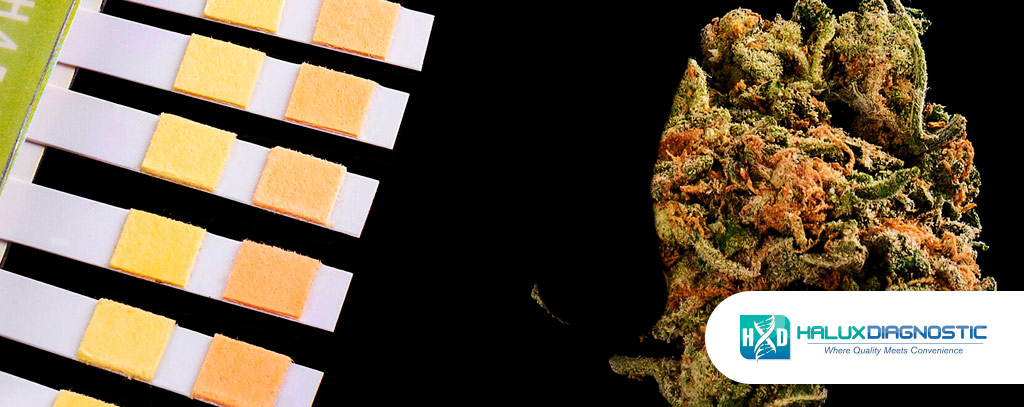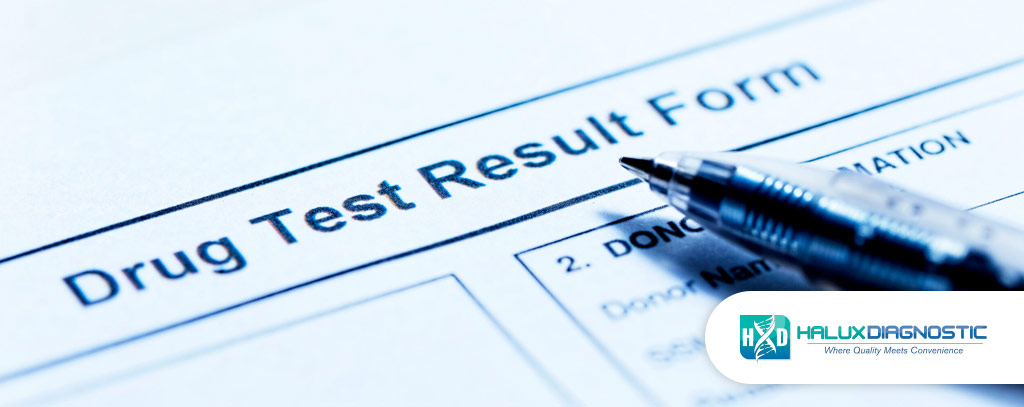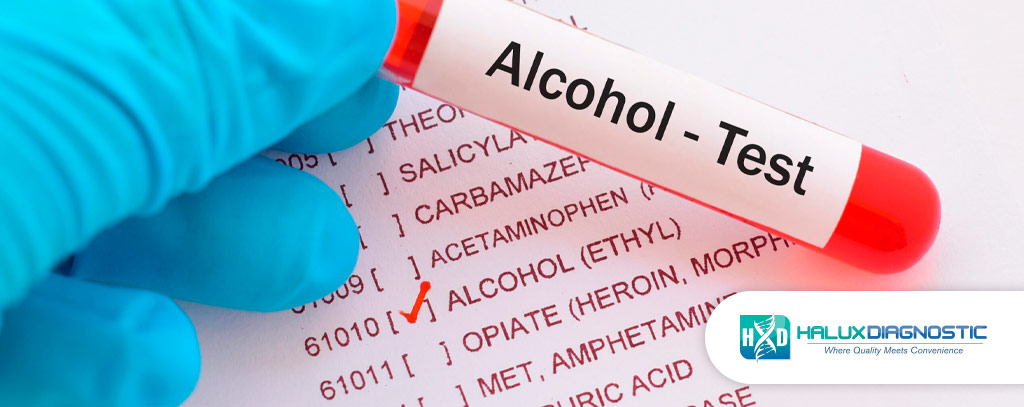
Drugs Tested in a 10-panel Drug Test
March 7, 2022
Common Drug Testing Questions
April 2, 2022In the most recent version of the American Psychiatric Association’s (APA) DSM, a person with alcohol use disorder (AUD) suffers from a medical condition characterized by the impaired ability to stop or control alcohol use despite adverse social, occupational, or health related consequences. It encompasses the conditions that some people refer to as alcohol abuse, alcohol dependence, alcohol addiction, and the colloquial term, “Alcoholism.”
AUD is a disease that can be treated. Some tests can also help show if the condition is mild, moderate, or severe. An alcohol use screening test can help your provider make an effective treatment plan for you.
There are different criteria for diagnosing an alcohol use disorder. The most commonly used standards are from the fifth edition of the Diagnostic and Statistical Manual of Mental Disorders (DSM-5). However, laboratory tests are used to identify the blood-alcohol concentration.
Tests such as the ethyl glucuronide (EtG) and ethyl sulfate (EtS) test can determine acute alcohol ingestion. Carbohydrate-deficient transferrin (CDT) and phosphatidylethanol (PEth) are useful markers for monitoring abstinence after long-term use.
Other tests such as the Alco-Screen are rapid, highly sensitive methods to detect the presence of alcohol in saliva and provide an approximation of relative blood alcohol level. It is well established that the concentration of alcohol in saliva is very close to that of the blood, making saliva the preferred specimen for alcohol testing. This allows for greater detection sensitivity than the breathalyzer testing method. The Alco-Screen is a very simple, one-step test requiring no instrumentation, calibration, or special training to be used effectively. It only takes two minutes to administer and is convenient enough to be used any time, any place.
An EtG alcohol test is used to determine whether or not a person has recently consumed alcohol by detecting the presence of ethyl glucuronide (EtG) in an individual’s urine. This type of test is mainly administered to individuals who are not supposed to be consuming alcohol for one reason or another, i.e., those in alcohol treatment programs, on criminal probation, or in DWI/DUI programs.
When a person consumes ethyl alcohol, their body metabolizes it and produces ethyl glucuronide (EtG). While ethyl alcohol can leave the body in a matter of hours, EtG remains present for up to 3-days after ethyl alcohol consumption. Testing for the presence of EtG is essential because it will determine if a person has recently consumed alcohol – not simply if they are intoxicated at the time of the test.
The most significant benefit of ethyl glucuronide (EtG) urine alcohol tests over breath or saliva alcohol tests is the fact that alcohol can be detected for up to 3-days after consumption. Ethyl glucuronide is present in urine for up to 48-hours in most individuals. In heavier drinkers, ethyl glucuronide is typically present for up to 72-hours or more.
Sources:
https://www.niaaa.nih.gov/publications/brochures-and-fact-sheets/understanding-alcohol-use-disorder
https://medlineplus.gov/lab-tests/alcohol-use-screening-tests/
https://arupconsult.com/content/alcohol-abuse
https://haluxdiagnostic.com/product/alco-screen-alcohol-saliva-test/
https://haluxdiagnostic.com/product/etg-alcohol-test-kit/
AUD is a disease that can be treated. Some tests can also help show if the condition is mild, moderate, or severe. An alcohol use screening test can help your provider make an effective treatment plan for you.
There are different criteria for diagnosing an alcohol use disorder. The most commonly used standards are from the fifth edition of the Diagnostic and Statistical Manual of Mental Disorders (DSM-5). However, laboratory tests are used to identify the blood-alcohol concentration.
Tests such as the ethyl glucuronide (EtG) and ethyl sulfate (EtS) test can determine acute alcohol ingestion. Carbohydrate-deficient transferrin (CDT) and phosphatidylethanol (PEth) are useful markers for monitoring abstinence after long-term use.
Other tests such as the Alco-Screen are rapid, highly sensitive methods to detect the presence of alcohol in saliva and provide an approximation of relative blood alcohol level. It is well established that the concentration of alcohol in saliva is very close to that of the blood, making saliva the preferred specimen for alcohol testing. This allows for greater detection sensitivity than the breathalyzer testing method. The Alco-Screen is a very simple, one-step test requiring no instrumentation, calibration, or special training to be used effectively. It only takes two minutes to administer and is convenient enough to be used any time, any place.
An EtG alcohol test is used to determine whether or not a person has recently consumed alcohol by detecting the presence of ethyl glucuronide (EtG) in an individual’s urine. This type of test is mainly administered to individuals who are not supposed to be consuming alcohol for one reason or another, i.e., those in alcohol treatment programs, on criminal probation, or in DWI/DUI programs.
When a person consumes ethyl alcohol, their body metabolizes it and produces ethyl glucuronide (EtG). While ethyl alcohol can leave the body in a matter of hours, EtG remains present for up to 3-days after ethyl alcohol consumption. Testing for the presence of EtG is essential because it will determine if a person has recently consumed alcohol – not simply if they are intoxicated at the time of the test.
The most significant benefit of ethyl glucuronide (EtG) urine alcohol tests over breath or saliva alcohol tests is the fact that alcohol can be detected for up to 3-days after consumption. Ethyl glucuronide is present in urine for up to 48-hours in most individuals. In heavier drinkers, ethyl glucuronide is typically present for up to 72-hours or more.
Sources:
https://www.niaaa.nih.gov/publications/brochures-and-fact-sheets/understanding-alcohol-use-disorder
https://medlineplus.gov/lab-tests/alcohol-use-screening-tests/
https://arupconsult.com/content/alcohol-abuse
https://haluxdiagnostic.com/product/alco-screen-alcohol-saliva-test/
https://haluxdiagnostic.com/product/etg-alcohol-test-kit/





